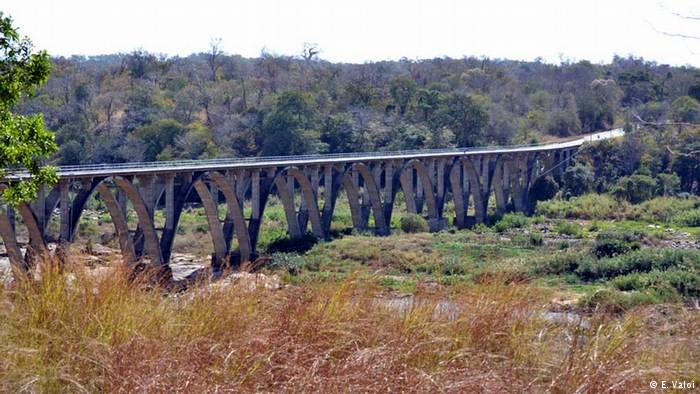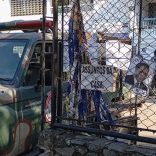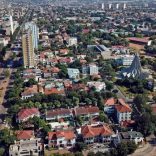Mozambique: 9 out of 10 kidnapping cases this year have been cleared up, with victims returned to ...
Ambushes turn Mozambique’s main highway into a “ghost road”

DW / A Section of National road number 1 by Gorongosa where most of the attacks have occurred
Since Mozambique’s security forces initiated military escorts between Save and Muxungué on the country’s main highway, traffic has passed just four times a day. For the rest of the time, the EN1 is a ghost road.
Lusa reporters have travelled the hundred-kilometre section in Sofala province both with and without escort, and testify to scenes recalling a war movie, with burned-out vehicles reminiscent of the 2013-14 military conflict between the government and Renamo.
Now, new Dolphin armoured vehicles and hundreds of military personnel stationed in three strategic locations on the section stand to respond to any repetition of the latest weeks’ attacks attributed to Renamo’s armed wing in the context of their threat to size power by force in the six provinces where the movement claims electoral victory.
Five minutes after a police Rapid Intervention Unit vehicle turns on its siren and leads a column off towards Muxungué, drivers who insist on altering the positions assigned to them in the column by police officers are already jockeying for position.
“I’m not going to follow behind any suspicious vehicle, especially a bus carrying military,” warns one motorist placed just behind a Nagy bus he suspects of carrying state troops. Two Nagy buses have previously been shot at, with two deaths resulting.
After half an hour on the road, vehicles are widely separated from each other and even more so from the “minesweepers”, as people call the lead vehicles, the drivers dropping back from what they see as the most likely targets of attack.
Vehicles that break down during the trip are on their own, hopefully lucky enough to stop near a military position for some protection.
“I had a breakdown on the morning column to Muxungué, but now I am leaving because my truck has been repaired,” a truck driver with a cargo of logs told Lusa, standing by the Gorongosa river in Chibabava district. He said he would continue his journey without waiting for the next convoy, because he found that at the time there was “no military problem by either side anyway”.
Paradoxically, some motorists are very keen to distance themselves from the convoys because they feel less at risk without them that they fake breakdowns. Others slow down on purpose to distance themselves from the police special forces’ vehicles.
“These escorts are only escorts in name. There were just Khalau’s idea [Jorge Khalau, former Commander-General of Police, dismissed on March 2]. That is why there are so few military here,” a soldier admits.
The same man said that the ‘Djangos’ (soldiers) had arrived only a few days before with the equipment necessary to “stop Renamo playing around”.
In stark contrast with the scenes of war, children are casually selling selling “sura”, a traditional (alcoholic) drink extracted from wild palm trees, by the Ripembe river, on a stretch of the N1 where three attacks against military-escorted columns took place last month.
Between columns, small groups of young people practice dances among their ‘sura’ sitting on the grass verges of the N1. After the armoured vehicles and their civilian charges have passed along, the N1, one of the busiest roads in the country, becomes a ghost road, and the dances and the sura just a way of disguising the harsh reality of the new military status quo.












Leave a Reply
Be the First to Comment!
You must be logged in to post a comment.
You must be logged in to post a comment.